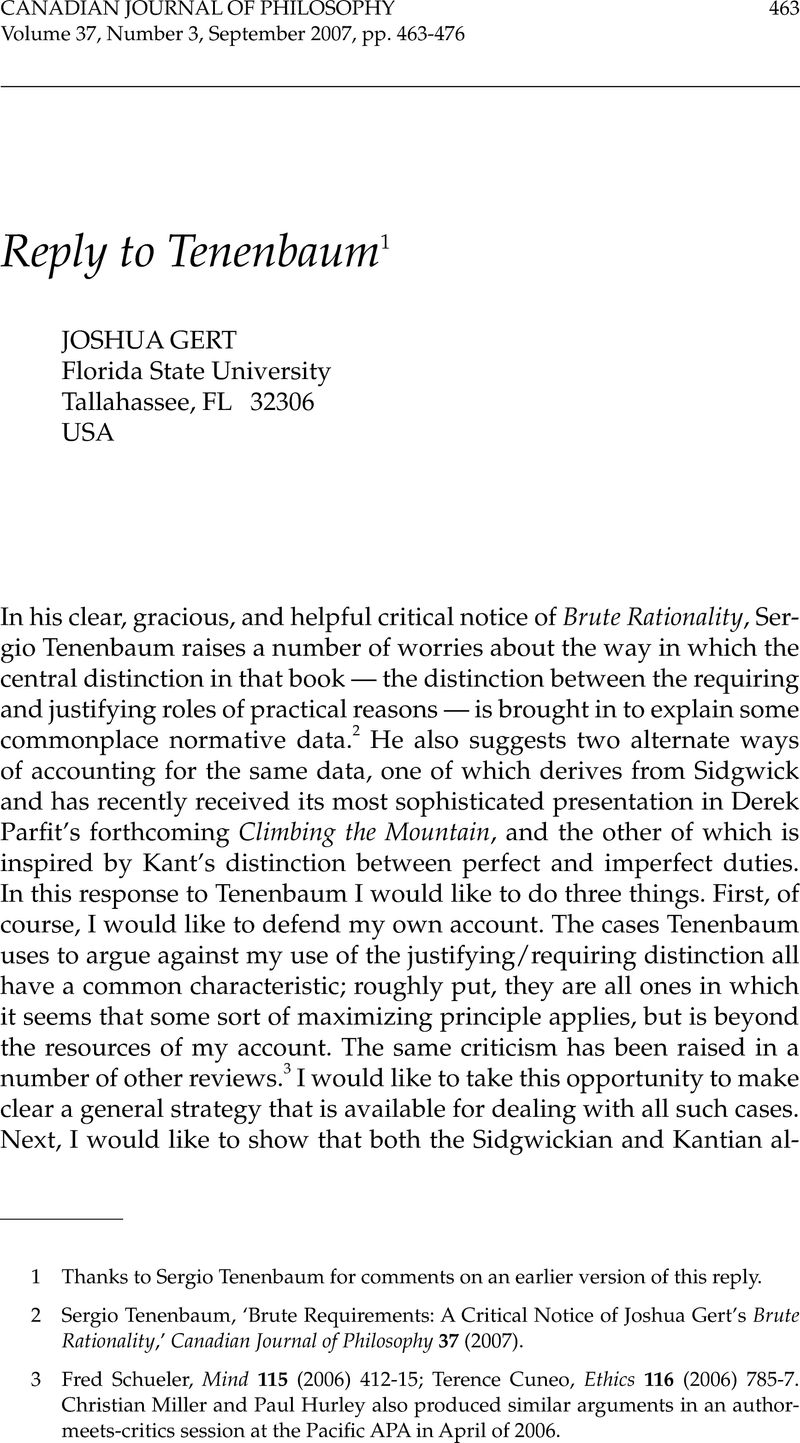Article contents
Reply to Tenenbaum
Published online by Cambridge University Press: 01 January 2020
Abstract

- Type
- Reply
- Information
- Copyright
- Copyright © The Authors 2007
References
1 Thanks to Sergio Tenenbaum for comments on an earlier version of this reply.
2 Tenenbaum, Sergio ‘Brute Requirements: A Critical Notice of Joshua Gert's Brute Rationality,’ Canadian Journal of Philosophy 37 (2007).CrossRefGoogle Scholar
3 Schueler, Fred Mind 115 (2006) 412–15;CrossRefGoogle Scholar Cuneo, Terence Ethics 116 (2006) 785–7.CrossRefGoogle Scholar Christian Miller and Paul Hurley also produced similar arguments in an authormeets-critics session at the Pacific APA in April of 2006.
4 ‘Normative Strength and the Balance of Reasons,’ Philosophical Review 116 (2007) 533-62
5 My notion of subjective rationality takes account of an agent's subjective motivations and epistemic state, and for that reason is called ‘subjective.’ Nevertheless, there are some actions that it would be subjectively irrational for any agent to perform. There is a sense of ‘objectively irrational’ that could reasonably be applied to such actions, and that would be sensitive to the existence of alternatives. But that is simply not the sense at issue here, which has most directly to do with the relative values of items thought of as potential trade-offs.
6 This question may prompt the response: ‘a state that is stipulated to produce only actions that are objectively rational.’ A full answer to this worry is beyond the scope of this short response, but depends on the fact that human beings are simply not subject to such states, and the idea that ‘irrational’ is best understood as a response-dependent notion.
7 Of course these simple assignments of value ignore such phenomena as the diminishing marginal value of money, and other factors. But none of these factors are important to the argument, so I am ignoring them.
8 Of course I do not mean that the aim is to capture a supposedly unique sense shared by precisely these English words. Certainly these are used in a variety of ways, some of which are quite distant from my notion of subjective rationality. Rather, the point is to capture the sense these words express when they express a certain important notion connected with competence, mental illness, freedom of the will, moral responsibility, and so on.
9 In fact, Sidgwick explicitly denies it. See The Methods of Ethics 7th ed. (London: Macmillan 1907; reissued 1962), 381.
- 4
- Cited by


